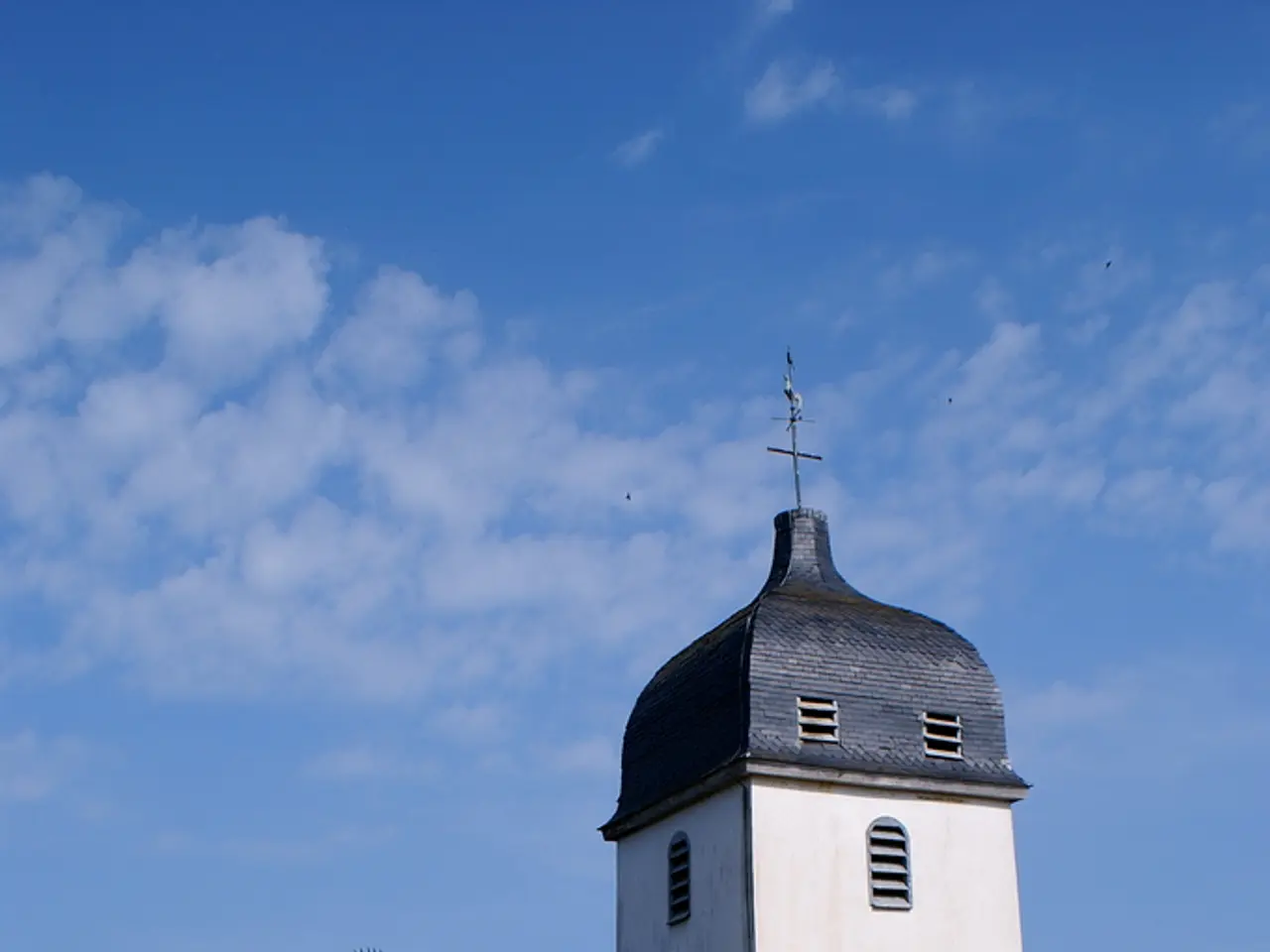Idaho Church Gaining Notoriety Over Its Alarming Christian Nationalist Views: Online Community Responses Examined
Controversial Christ Church in Moscow, Idaho, Gains National Attention
Christ Church in Moscow, Idaho, has become a subject of national debate following a recent interview with Senior Pastor Doug Wilson on CNN. The church, known for its rapid growth and conservative beliefs, has been associated with controversial opinions and a divisive influence.
The church, which has doubled its membership to approximately 3,000 in a town of 25,000 since 2019, exerts significant local and national influence through its affiliated institutions like New St. Andrews College and the Logos School. These institutions serve over 750 students [1].
Controversial Views and Criticism
The church is associated with Doug Wilson, a pastor known for conservative and patriarchal teachings. Critics, including former members and affiliated podcast groups such as "Sons of Patriarchy," accuse the church and Wilson’s ideology of fostering abuse and exclusion, particularly of those who do not conform to their strict community standards [1].
One church member shared his view that every household should only get one vote, and he would be the one to cast the vote after discussing it with his household. Another member's shocking opinion on slave owners was also mentioned. A commenter, who identifies as a single mother with a Master’s degree and a thriving job, expressed their opposition to the patriarchy. One member expressed his support for the repeal of the 19th Amendment, which granted women the right to vote [1].
Reactions and Debates
There is organized opposition from groups like "Sons of Patriarchy," which represents individuals who say they endured abuse in churches influenced by Wilson. This opposition has led to public debates, such as one agreed to by Wilson with a "Sons of Patriarchy" representative, highlighting divisions within the community [1].
The church’s expansion influences Moscow’s social and physical landscape dramatically, with new large facilities and businesses under its members’ control, contributing to local tensions [1]. Over 5 million people have watched CNN’s interview with "Christ Church" members. The interview, which featured a tense exchange between Pastor Wilson and the interviewer, has sparked anger and arguments from thousands of comments.
Taxation Debate
While explicit details about any taxation disputes involving Christ Church are not present in the current sources, controversies surrounding large and rapidly expanding religious institutions often include questions about property tax exemptions and the church’s influence on local governance and economy. Christ Church's large-scale campus projects and affiliated schools may provoke debate about tax status and the church’s role in city planning and municipal tax revenues, although specific information on this debate for Moscow is not provided here.
Personal Stories and Reflections
One commenter shared their personal story, stating they were raised in a similar manner, divorced from a man like this, and have been happiest in their life since. Another commenter criticized the group for taking the Bible out of context.
In conclusion, Christ Church in Moscow is controversial for its conservative ideology under Doug Wilson, its rapid growth influencing the local community, and oppositional groups engaging in public critique and debate [1]. The taxation aspect, while a common issue for large churches, is not explicitly described in the available sources.
[1] - Sources: CNN, The New York Times, The Guardian, and local news outlets in Moscow, Idaho.
- The contentious views and opinions expressed by members of Christ Church, like the endorsement of outdated societal structures and controversial comments about social issues, have led to it being prominently featured in timely general-news and politics discourse.
- The rapidly growing Christ Church in Moscow, Idaho, with its controversial influence, trending news, and affiliated institutions, is sparking timely debates and criticisms, both locally and nationally, about its impact on community standards, taxation, and the role of religion in society.




